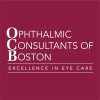Safety Study of Ranibizumab Eye Injections to Treat Choroidal Neovascularization That Was Caused Other Than by Age-Related Macular Degeneration.
Primary Purpose
Choroidal Neovascularization
Status
Completed
Phase
Phase 1
Locations
Study Type
Interventional
Intervention
ranibizumab
Sponsored by

About this trial
This is an interventional treatment trial for Choroidal Neovascularization focused on measuring choroidal neovascularization, Choroidal Neovascularization Not related to Age-Related Macular Degeneration
Eligibility Criteria
Inclusion Criteria:
- active choroidal neovascularization
Exclusion Criteria:
- pregnancy,age-related macular degeneration, current eye infection or recent eye surgery, participating in other eye studies
Sites / Locations
Arms of the Study
Arm 1
Arm Type
Active Comparator
Arm Label
ranibizumab
Arm Description
ranibizumab 0.5mg intravitreal injection
Outcomes
Primary Outcome Measures
The primary outcome measures for safety and tolerability
Secondary Outcome Measures
The secondary outcome measures for efficacy
Full Information
NCT ID
NCT00395551
First Posted
November 1, 2006
Last Updated
January 7, 2010
Sponsor
Ophthalmic Consultants of Boston
Collaborators
Genentech, Inc.
1. Study Identification
Unique Protocol Identification Number
NCT00395551
Brief Title
Safety Study of Ranibizumab Eye Injections to Treat Choroidal Neovascularization That Was Caused Other Than by Age-Related Macular Degeneration.
Official Title
A Single Center Study of the Safety and Efficacy of Multiple Intravitreal Injections of Ranibizumab in Subjects With CNV Secondary to Causes Other Than AMD.
Study Type
Interventional
2. Study Status
Record Verification Date
January 2010
Overall Recruitment Status
Completed
Study Start Date
December 2005 (undefined)
Primary Completion Date
June 2009 (Actual)
Study Completion Date
June 2009 (Actual)
3. Sponsor/Collaborators
Name of the Sponsor
Ophthalmic Consultants of Boston
Collaborators
Genentech, Inc.
4. Oversight
Data Monitoring Committee
No
5. Study Description
Brief Summary
The purpose of this study is to determine whether ranibizumab is effective in the treatment of choroidal neovascularization secondary to causes other then wet macular-degeneration.
6. Conditions and Keywords
Primary Disease or Condition Being Studied in the Trial, or the Focus of the Study
Choroidal Neovascularization
Keywords
choroidal neovascularization, Choroidal Neovascularization Not related to Age-Related Macular Degeneration
7. Study Design
Primary Purpose
Treatment
Study Phase
Phase 1
Interventional Study Model
Factorial Assignment
Masking
None (Open Label)
Allocation
Randomized
Enrollment
30 (Anticipated)
8. Arms, Groups, and Interventions
Arm Title
ranibizumab
Arm Type
Active Comparator
Arm Description
ranibizumab 0.5mg intravitreal injection
Intervention Type
Drug
Intervention Name(s)
ranibizumab
Intervention Description
0.5mg intravitreal injection
Primary Outcome Measure Information:
Title
The primary outcome measures for safety and tolerability
Time Frame
Mean change in visual acuity from baseline to 6 months & 12 months
Secondary Outcome Measure Information:
Title
The secondary outcome measures for efficacy
Time Frame
Mean change in visual acuity from baseline to 6 & 12 months. Change in retinal thickness from baseline to week 1, month 1, 2, 3, 6, & 12 measured by OCT. Change in area of CNV from baseline to month 3, 6 & 12 measured by FA
10. Eligibility
Sex
All
Minimum Age & Unit of Time
18 Years
Accepts Healthy Volunteers
Accepts Healthy Volunteers
Eligibility Criteria
Inclusion Criteria:
active choroidal neovascularization
Exclusion Criteria:
pregnancy,age-related macular degeneration, current eye infection or recent eye surgery, participating in other eye studies
Overall Study Officials:
First Name & Middle Initial & Last Name & Degree
Jeffrey S Heier, M.D.
Organizational Affiliation
Ophthalmic Consultants of Boston
Official's Role
Principal Investigator
12. IPD Sharing Statement
Learn more about this trial

Safety Study of Ranibizumab Eye Injections to Treat Choroidal Neovascularization That Was Caused Other Than by Age-Related Macular Degeneration.
We'll reach out to this number within 24 hrs